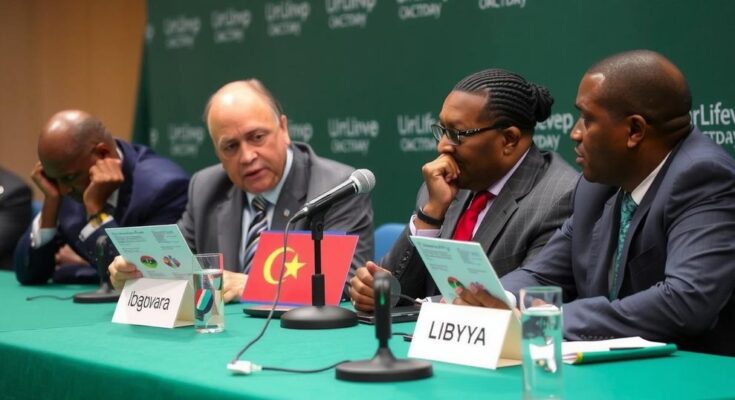The United Nations has announced a new initiative aimed at resolving Libya’s electoral challenges by forming a technical committee of experts. This group will work to address contentious electoral laws and accelerate the process leading to national elections, which have been stalled since December 2021. Despite the call for elections, skepticism remains among Libyans regarding the commitment of political leaders to genuinely facilitate democratic processes.
The United Nations is renewing its efforts to address the electoral deadlock in Libya by forming a technical committee composed of Libya experts, as announced by the Acting Head of the U.N. Mission in Libya (UNSMIL), Stephanie Koury, on Sunday. The committee aims to identify solutions to contentious electoral issues that have hindered the country’s path toward national elections since the failure of the December 2021 election amid candidate eligibility disputes.
This expert group will explore methods to expedite the electoral process, including establishing necessary guarantees, assurances, and a timeline for conducting elections as soon as feasible. Despite an established Government of National Unity (GNU) led by Prime Minister Abdulhamid al-Dbeibah through a U.N.-mediated process in 2021, the legitimacy of this government is disputed by the parliament, which has not recognized its authority. Al-Dbeibah has firmly asserted that he will not relinquish power unless a new government is installed through a legitimate electoral process.
Since the 2011 NATO-backed uprising, Libya has been embroiled in conflict, characterized by a division between eastern and western factions with competing administrations in control of their respective territories. Although key political figures within Libya have expressed a desire for elections, there remains widespread skepticism among Libyans regarding their true commitment to a vote that may jeopardize their positions of power.
Acting Head Koury emphasized that UNSMIL will persist in its efforts to support the unification of military and security institutions along with facilitating national reconciliation initiatives in conjunction with various partners.
The situation in Libya has remained fragile since the overthrow of Muammar Gaddafi in 2011, culminating in an ongoing political crisis exacerbated by division along regional lines. Following a series of violent conflicts and political stalemates, a U.N.-backed Government of National Unity was established in 2021 to guide the country toward elections. However, the failure to conduct elections as planned has further complicated the political landscape, engendering mistrust among the populace regarding the motives of the leading political figures. As various factions vie for power, external diplomatic efforts—including those from the U.N.—have sought to mediate and facilitate a resolution to the electoral impasse.
The U.N.’s recent initiative to establish a committee of Libyan experts signifies an important step towards addressing deep-seated electoral issues in the country. As the political landscape remains tumultuous, the emphasis placed on resolving conflicts surrounding electoral laws and the broader reconciliation processes indicates a concerted effort to pave the way for credible elections. The success of these initiatives will depend largely on the political will of Libyan leaders and their ability to transcend personal interests for the collective benefit of the nation.
Original Source: www.voanews.com




